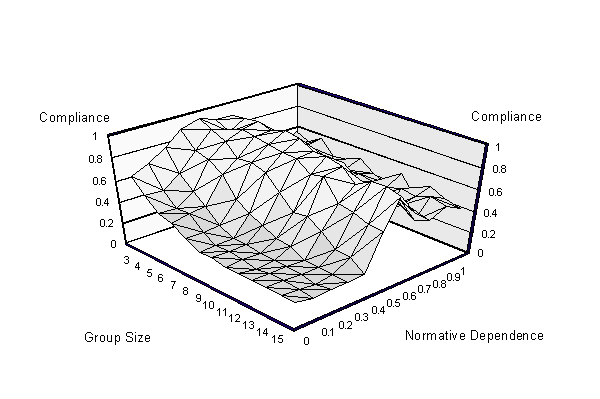
Structural Learning:
Attraction and Conformity in Task-Oriented Groups
by James A. Kitts
Michael W. Macy
Andreas Flache
ABSTRACT
This study extends previous research that showed how informal social sanctions can backfire when members prefer friendship over enforcement of group norms. We use a type of neural network to model the coordination of informal social control in a small group of adaptive agents confronted with a social dilemma. This model incorporates two mechanisms of social influence, informal sanctions and imitation. Both mechanisms vary with the strength of the social tie between source and target. Previous research focused on the effects of social sanctions. Here, we demonstrate a curvilinear effect of imitation - or "mimetic influence" - on compliance with prosocial norms. Moderate doses of mimetic influence reduce the coordination complexity of self-organized collective action and help the network achieve satisfactory levels of cooperation. High doses, however, undermine the agent-based learning required to find cooperative solutions. Increasing group size also diminishes compliance due to increased complexity, with larger groups requiring more imitation to overcome the coordination problem.
Click For Electronic Reprint